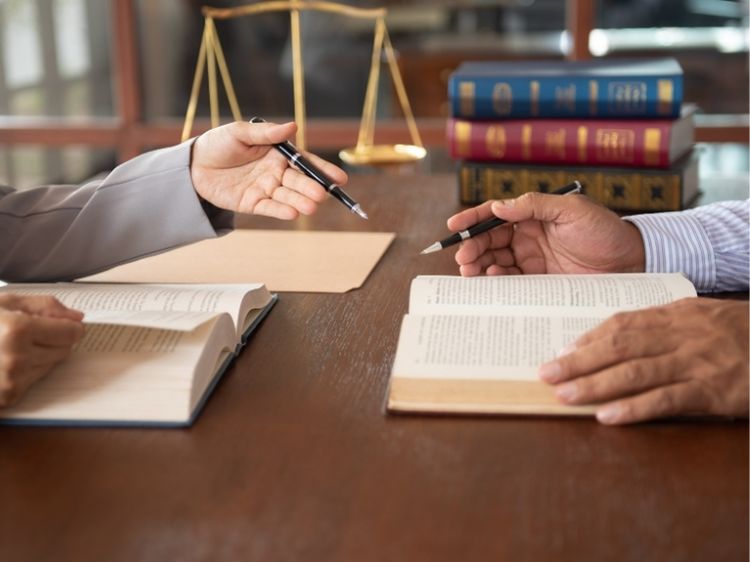Ever wondered, “Who can help me when a defective product turns my life upside down?” You’re not alone. Product-related injuries happen more often than you think, and finding a products liability lawyer near me can feel like searching for a needle in a haystack. This article dives into the nuts and bolts of products liability law, helping you understand when to seek legal help and what to expect when you do. Let’s get into it!
What Is Products Liability Law?
Products liability law ensures manufacturers, distributors, and retailers are held accountable when their products harm consumers. This branch of law covers:
- Defective Design: When a product is inherently unsafe due to its design.
- Manufacturing Defects: Issues arising during production that make a product dangerous.
- Failure to Warn: Lack of proper instructions or warnings about a product’s risks.
The goal is to protect consumers like you and ensure companies maintain high safety standards.
Why Would You Need a Products Liability Lawyer?
Here are some common scenarios where you might need legal assistance:
- Injuries from Defective Products: From faulty car brakes to malfunctioning electronics, injuries can occur anywhere.
- Medical Device Failures: Think about pacemakers or hip implants that don’t perform as intended.
- Dangerous Pharmaceuticals: Medications with unforeseen side effects can wreak havoc on your health.
- Harmful Consumer Goods: Everyday items like toys or appliances can cause accidents if improperly designed.
If you’ve experienced any of these, it’s time to Google “products liability lawyer near me.“
How to Choose the Best Products Liability Lawyer Near Me
When picking the right lawyer, keep these tips in mind:
1. Look for Specialization
Not all lawyers handle products liability cases. Ensure the attorney has relevant experience with defective product claims.
2. Check Reviews and Testimonials
Client reviews on platforms like Avvo or Google can offer valuable insights into a lawyer’s reputation.
3. Ask About Fee Structures
Some lawyers work on a contingency basis, meaning you only pay if they win your case. Always clarify payment terms upfront.
4. Schedule a Free Consultation
Most law firms offer a no-obligation consultation. Use this time to ask about:
- Their experience with similar cases.
- Expected timelines and outcomes.
- Whether they’ll personally handle your case or delegate it.
5. Consider Accessibility
Choose a lawyer or firm near you for easy communication and quicker access to in-person meetings.
Steps to Take Before Meeting a Lawyer
Before you meet with a lawyer, gather these essential items:
- Proof of Purchase: Receipts, invoices, or bank statements.
- Product Documentation: Manuals, instructions, or packaging.
- Injury Evidence: Medical records, photos, or witness statements.
- Incident Report: A timeline of what happened and how the product caused harm.
Being prepared ensures your lawyer can assess your case quickly and efficiently.
Common Defective Products in Lawsuits
Here are a few product categories frequently seen in liability cases:
- Automotive Parts: Faulty airbags, brakes, or tires.
- Electronics: Overheating devices or batteries.
- Household Appliances: Defective kitchen gadgets or heaters.
- Children’s Toys: Small parts that pose choking hazards.
- Pharmaceuticals: Drugs with dangerous side effects.
If you’ve been harmed by any of these, don’t hesitate to seek legal help.
What to Expect When Filing a Products Liability Claim
1. Initial Consultation
Your lawyer will review your case to determine its strength and whether it’s worth pursuing.
2. Evidence Collection
This includes product inspections, expert testimony, and medical reports.
3. Filing the Claim
Your lawyer will file a complaint in the appropriate court and notify the defendant(s).
4. Settlement Negotiations
Most cases are resolved through settlements. Your lawyer will negotiate on your behalf to ensure fair compensation.
5. Trial (If Necessary)
If a settlement isn’t reached, the case may go to trial. Your lawyer will present evidence to prove negligence or liability.
Benefits of Hiring a Local Products Liability Lawyer
Why search for a “products liability lawyer near me” instead of hiring someone far away? Here’s why:
- Familiarity with Local Laws: State laws can vary, and a local lawyer will understand the nuances.
- Accessibility: Face-to-face meetings are more convenient.
- Stronger Network: Local lawyers often have connections with courts, judges, and expert witnesses.
FAQs About Products Liability Lawyers
1. What does a products liability lawyer do?
They help clients injured by defective products recover compensation for medical bills, lost wages, and other damages.
2. How much does hiring a lawyer cost?
Many lawyers work on a contingency fee basis, meaning you don’t pay unless you win.
3. How long does a products liability case take?
Cases can take anywhere from a few months to several years, depending on complexity.
4. Can I sue if I didn’t use the product as intended?
It depends. If the misuse was foreseeable, you might still have a case.
5. What compensation can I receive?
You can recover damages for medical bills, lost wages, pain and suffering, and, in some cases, punitive damages.
Conclusion
Finding the right products liability lawyer near me doesn’t have to be overwhelming. By understanding the basics of products liability law and knowing what to look for in an attorney, you’re well-equipped to take action. Whether you’ve suffered from a defective toy, faulty appliance, or dangerous drug, legal help is just a call away. Don’t wait—take the first step toward justice today.
Authoritative Links
- Consumer Product Safety Commission: www.cpsc.gov
- American Bar Association: www.americanbar.org
- National Consumer Law Center: www.nclc.org

